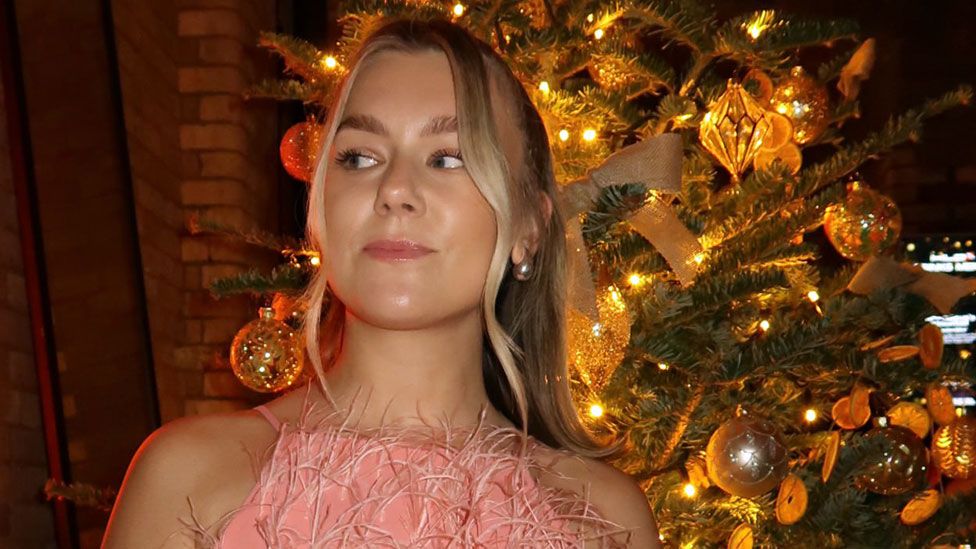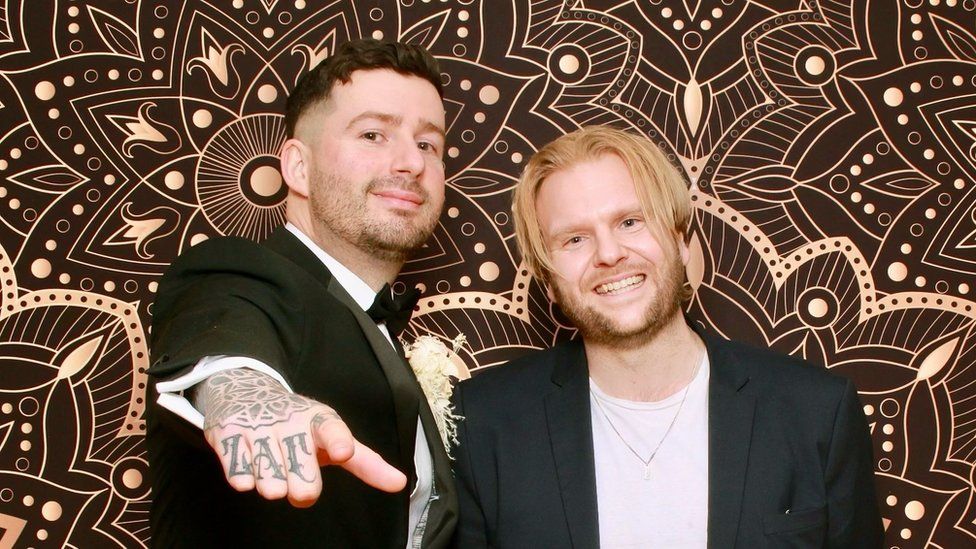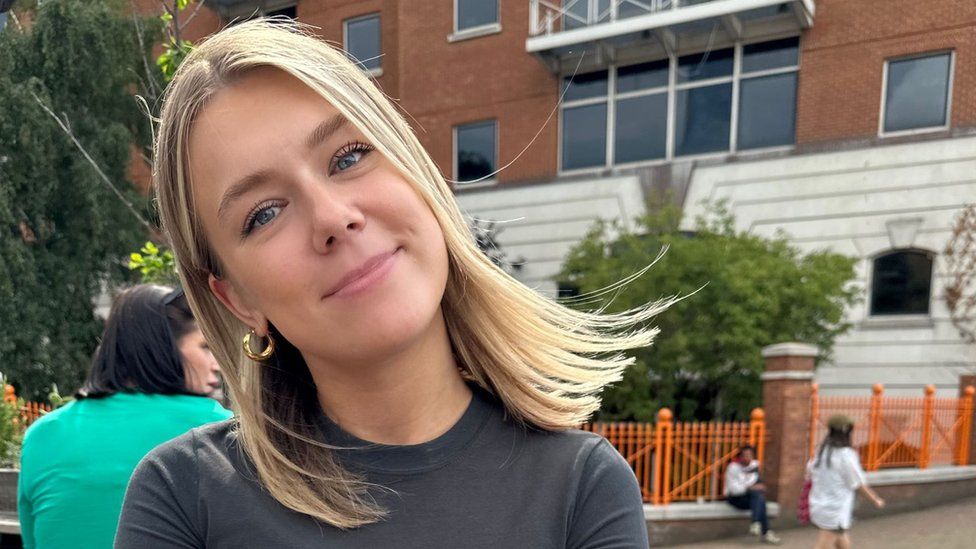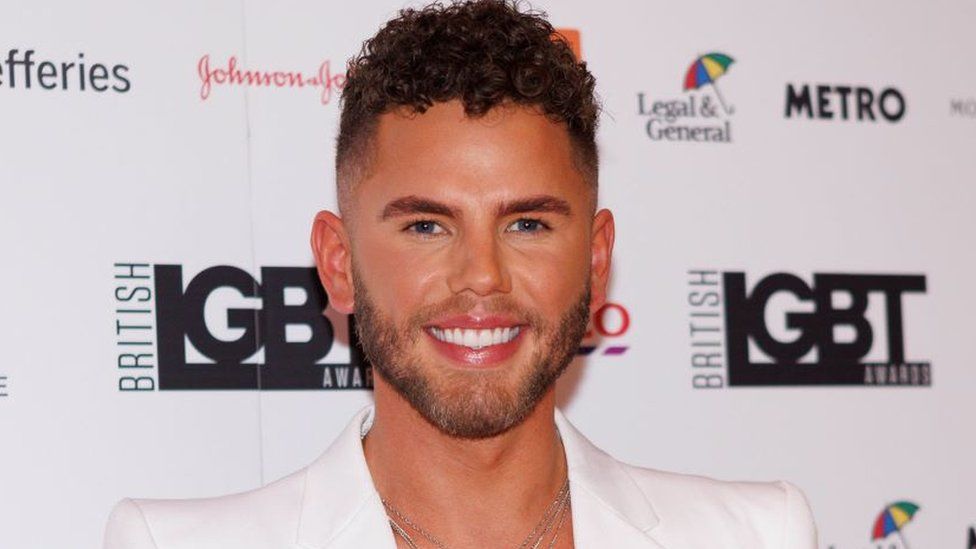
For lots of us, alcohol is a big part of Christmas Day, not to mention New Year’s Eve.
But more and more people are shunning booze by cutting down or opting to go sober.
Latest figures from the NHS suggest a third of people under 25 have not drunk alcohol for at least a year.
We’ve all seen reports that it’s much better for us, but going dry for more than just January can still be a challenge.
It’s something Kali Thompson, Jamie Osman and Tom Hollings know all about.
DJs Jamie and Tom decided to go sober over the past two years – and in 2022 they both celebrated their first Christmas without drinking.
And TikToker Kali is looking ahead to her first festive season off the booze after going sober in June.
“Most Christmas Days I’ve been extremely hungover,” says the 25-year-old, who gained a following online by sharing videos of drunken nights out.
The influencer was worried she would struggle to avoid booze but is actually feeling “totally fine”.
Tom says his first sober Christmas was “really refreshing – mainly because I didn’t ruin Christmas Day”.
For anyone thinking of cutting down on drinking this festive season, Kali, Tom and Jamie shared some of their top tips with BBC Newsbeat.

1. It’s OK to say no
If there’s a time when your willpower might be tested, chances are it will happen when people around you are drinking.
“I think everyone has a very big fear that you stop drinking and your social life stops,” says Tom, who hosts the They Think It’s All Sober podcast with Jamie.
That fear can feel even stronger at Christmas, with all the parties and catch-ups that often involve drinking.
But you don’t have to go to every single one, says Tom.
“There’s a lot of them,” he says.
“You can plan an exit even if it means backdooring it and not saying goodbye to people.”

What the figures show
- According to the British Beer and Pub Association, 87% of pubs now serve non-alcoholic beer (NAB) and low-alcoholic beer (LAB)
- There is also more variety – in 2015 there were hardly any NAB/LAB ales, now it makes up 20% of the available options
- Tesco says demand for beers has increased by more than 20%
- Sales of no/low wine rose by nearly 15% and demand for alternatives to spirits grew by nearly 10% at the supermarket
- According to DrinkAware, those least likely to drink are aged 16 to 24, with 26% of that age group fully sober.

2. Text ahead and stock up
One way to avoid those awkward conversations or your uncle trying to pour wine into your glass is to let your loved ones know you don’t want to drink in advance.
“If you’re planning on not drinking and it’s a new thing, letting your family and friends know in advance goes a long way,” says Tom.
“Just sending a text to say, ‘Hey, just letting you know I’m taking a break from drinking at the moment’ is probably better than doing it in a live environment on the night where someone’s going, ‘Oh, it’s Christmas, just have one’.”
Tom, Jamie and Kali all say their friends and family have been really supportive of their decision not to drink.
And it’s easier to say no to any well-meaning offers if you’ve already got a drink in your hand.
“Last Christmas, I made sure that I just had a bunch of 0% beers in my car wherever I was going,” says Jamie.
3. Remember your reasons
If Kali’s feeling tempted to have a drink, she just opens her notes app.
“I made a note in my phone of all the reasons why I need to go sober and why I want to stay sober,” she says. “And whenever I have that thought of ‘I could just have a drink’, I’d read it.”
She’s found sharing her sober journey on her own podcast, Hangxiety, as well as listening to other people’s experiences has been a good way of helping her stick to it.
“Listen to podcasts, read books, hang out with other people that are sober, make sober friends, tell everybody about it,” she says.
“If you make it your personality, you kind of stick to it.”

4. Treat yourself
Jamie and Tom both go for an alcohol-free Pilsner as their Christmas tipple of choice while Kali’s more of an alcohol-free wine kind of girl.
“The market for 0% alcohol or low alcohol has expanded so much in the last year-and-a-half, two years,” says Jamie.
So if you aren’t drinking this year, you don’t have to be limited to orange juice.
- Going sober has dramatically changed my life
- Sober lives: ‘I can be confident on orange juice’
- Going sober in your 20s to ease the cost of living
And even having a drink in a Champagne flute or wine glass can go a long way to making an alcohol-free alternative feel more Christmassy.
“I like drinking anything in a wine glass,” says Kali. “It just gives me the the idea that I’m having a little bit of a drink.”
“There are so many amazing options now whether that be beer, wine, spirits, proseccos,” Jamie adds, which can help you still feel included.
5. Don’t listen to your inner voice
“I was really, really nervous when I first went sober that I’m going to be so boring,” says Kali. “Because I didn’t feel confident without the alcohol.”
While she and Tom say the first few months were a challenge, Kali says “you soon start to find your confidence”.
Without drinking, she says she’s a more attentive friend but she admits it’s a bit harder to find your feet on the dancefloor.
“I still find that quite awkward,” she says.
“And if you are standing there thinking, ‘Maybe I could just have one drink, it wouldn’t hurt’, try to separate that voice in your head, because it’s not really what you want.”

‘I’ve got three under my belt now’

Radio 1 presenter Dean McCullough has been sober for three years and says he can’t imagine Christmas any other way.
“People will banter you for saying that you’re having a sober Christmas,” he says.
“But when you explain to somebody the reasons why you’re doing it, or you tell them that you might need their support this Christmas to stay sober, then I think you’ll be pleasantly surprised.”
Dean recommends having fun making festive alcohol-free cocktails and getting your friends and family involved.
“Let the people that you’re with try it because when they love it too, you’ll feel validated.”



